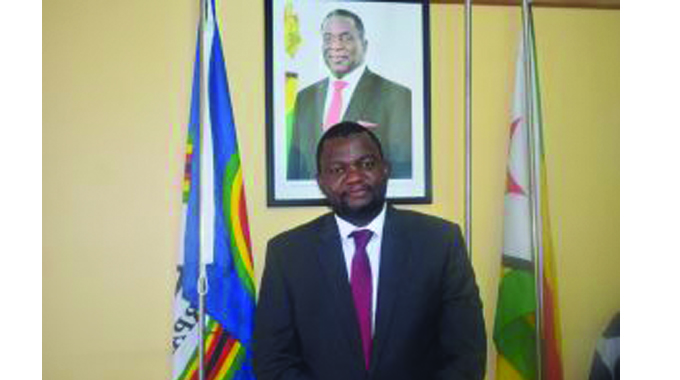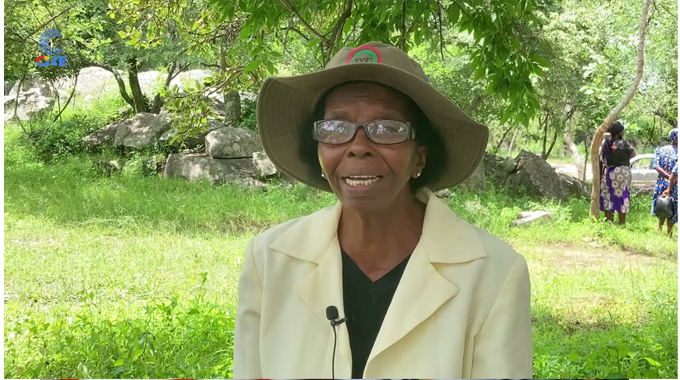Authority capacitates radiation officers

Leonard Ncube in Victoria Falls
THE Radiation Protection Authority of Zimbabwe (RPAZ) has implored high risk radiation mining, industrial and medical facilities to have focal safety persons who should undergo training to be capacitated with knowledge to identify radiation risks.
RPAZ was formed a decade ago to regulate radiation usage in the country to protect people and the environment and ultimately alienate cancer, which is one of the effects of radiation.
Teaching of radiation science and technology is not common in Zimbabwe and people generally think of nuclear weapons and the August 1945 Hiroshima and Nagasaki attacks when they hear the word nuclear.
Zimbabwe is on accelerated infrastructure construction, especially on the roads network where ionizing radiating equipment is being used for moisture testing, storage and transportation and this needs close monitoring of radiation emission.
RPAZ recently conducted training for radiation officers from mining, industrial and baggage handling facilities to capacitate them with knowledge that would help protect workers, the public and the environment.
This is one of a series of training sessions for radiation officers which are also happening for journalists.
Speaking during training of mining, industrial and other radiation source facilities focal persons in Victoria Falls recently, RPAZ chief executive Mr Justice Chipuru said Section 16 of the Radiation Protection Act (Chapter 15:15) mandates every facility that uses radiation to appoint a radiation officer.
“So this advanced radiation training is meant to build the competencies of such officers to be able to identify radiation risks as well as implement and monitor the implementation of radiation safety plans at their workplaces.
“We have always insisted before licencing an organisation that they must appoint a radiation safety officer but our education system is such that nuclear science and technology is not so common so we have taken it upon ourselves to build capacity,” he said.
Mr Chipuru said radiation protection is simply the protection of people and environment and the first way of protecting people is to make them aware of the hazards.
“These officers are specifically representing facilities that are using radiation sources and journalists represent the communities,” he said.
RPAZ technical services manager Mr Amos Muzongomerwa who conducted the training said they are targeting industrial and mining facilities that use radiation as well as baggage handling facilities at ports of entry.
The objective is to capacitate the radiation officers so that they are able to effectively undertake assessments within their practices, including external inspections and internal audits.
“We have given basic training to industries and this is an advanced training so that they are more competent in terms of actually undertaking internal inspections. We want to ensure that we have adequate and competent staff to implement radiation programmes,” he said.

Mr Muzongomerwa said radiation sources should be used in a safe and secure manner for protection of members of the public and workers.
He said the industry are the custodians of radiation sources so they have to be effectively trained.
Participants commended the training saying they have been capacitated to protect employees, communities and surroundings from radiation sources.
Many organisations are in the process of improving and developing grey areas at their premises in line with the policy.
One of the participants, Zimbabwe Consolidated Diamond Mining Company’s head of health safety environment and quality Mr Anthony Njaya said the training had given them skills to undertake forexample leakage tests to prevent accidental emission of radiation to the public.

“This advanced radiation training is unique because it is practical in nature as we are interacting as institutions handling radiation equipment. We have benefited,” he said.
It has been noted that use of radiation materials has been on the increase in the past few years in Zimbabwe because of interaction with technology and imports.
Over exposure and unsafe use of radiation technology has health effects such as cancer, sterility, cataracts and hereditary disorders.
Some of the symptoms of radiation may be nausea, headache, diarrhoea, loss of appetite, fatigue, seizures, swelling, itching and burning of skin, blisters, ulcers, cardio vascular diseases, damage to reproductive cells and hereditary defects. — @ncubeleon








Comments